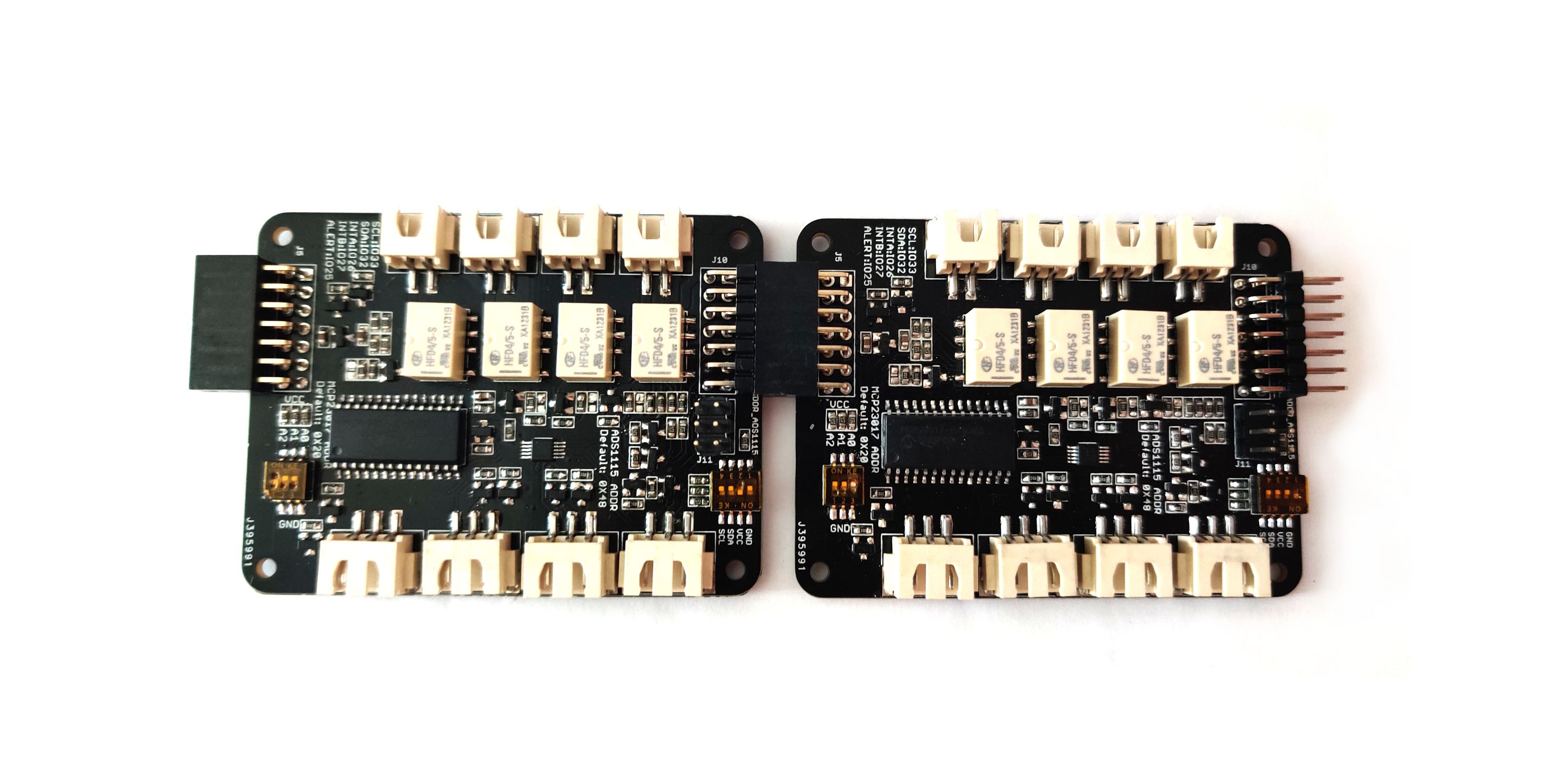
Over the past two weeks, we’ve noticed that a lot of backers have been requesting more than a single Eduponics Mini Extension Board. Which makes sense, given that we described how one Eduponics Mini ESP32 Dev Board can support up to four extension boards. Until recently, however, a setup like that would have required additional soldering to configure the resistors that control the I²C addresses. And that, in turn, could inconvenience our users and perhaps even result in damaged boards—neither of which we want.
Our solution? DIP Switches!
More DIP Switches!
We’ve upgraded our extension board to include two DIP switches, one for the ADS1115 and another for the MCP23017. We produced two samples and tested them to confirm that everything works perfectly. The new design is ready for mass production.
Although the MCP23017 can support up to eight address changes (meaning eight extension boards can be connected together), the ADS1115 can only support four address changes, which means we max out at four extension boards per Eduponics Mini ESP32 Dev Board. That shouldn’t be a problem, though, seeing as four extension boards will give you 16 relays (plus the one on the dev board itself) and 16 ADC-input ports.
More IO!
We made another small upgrade as well. The MCP23017 has 16 IO ports, but we were only using eight of them (four for relays and four for the ADS1115 MOSFETs). To make the extension board even more versatile, we’ve added access to four additional IO ports from the MCP23017!
More Blinkies!
And finally, to create some visible feedback, we’ve add eight tiny LEDs (four for the relays and four for the MOSFETs on the ADC ports) to make it easy to see when a single board is used. (And don’t worry about power consumption; those LED’s will only be activated when their corresponding relay or ADC sensor is in use.)
And a Video
We are working to release a video—currently scheduled for this Sunday—that introduces the above functionality and that demonstrates how it all works. If you want to be notified when that video is released, please subscribe to our YouTube Channel.
